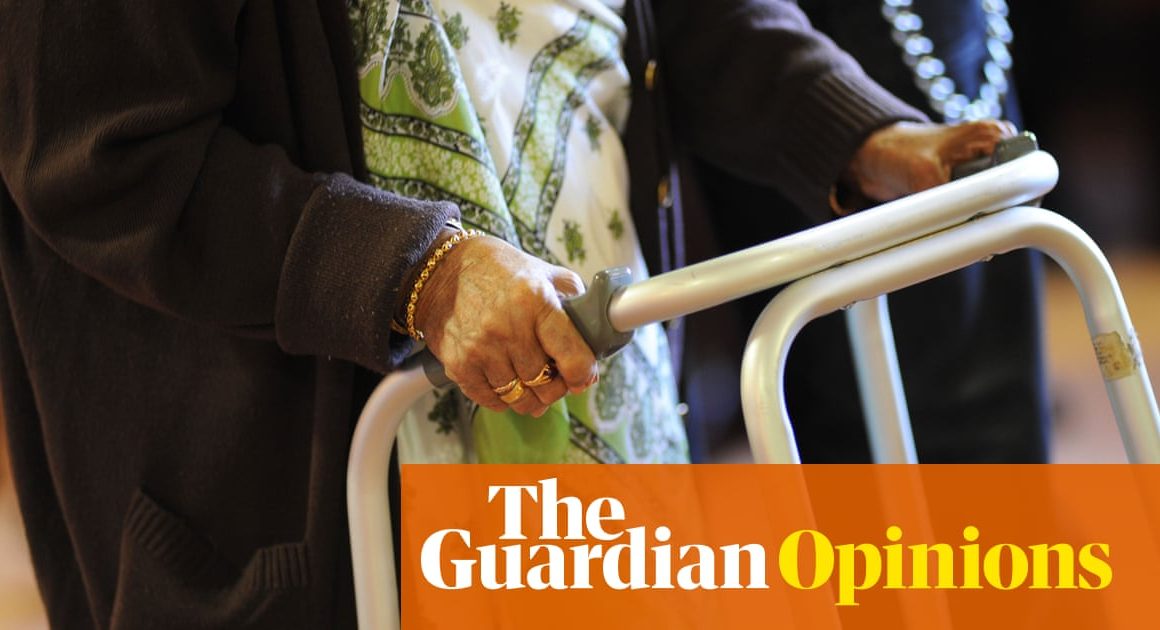UK inflation rate rises to 2.2%
Newsflash: Inflation across the UK has risen, as feared, for the first time this year.
The consumer price index, which measures changes in the cost of living, rose by 2.2% in the year to July.
That’s an increase from 2% in both May and June, and the first increase in inflation since last December (when CPI inflation was 4%).
It takes the rate of price increases back above the Bank of England’s 2% target.
But it’s not quite as high as the 2.3% which City economists expected.
The Office for National Statistics says that the largest upward contribution to this month’s change in inflation came from housing and household services where prices of gas and electricity fell by less than they did last year.
But…the largest downward contribution came from restaurants and hotels, where prices of hotels fell this year having risen last year. That’s a surprise, as economists had suggested that surge pricing at hotels would add to inflation.
Key events
Food inflation stops falling
The inflation rate for food and non-alcoholic beverage prices remained at 1.5% per year in July.
That matches June’s reading, which was the joint lowest annual rate since October 2021.
But, this is the first time since March 2023 that the annual rate of food and drink inflation hasn’t fallen.
At its peak, the rate hit 19.2% in March 2023, when shortages of salad vegetables pushed up prices.
Gas prices 68% higher than in March 2021
It’s important to remember that the falls in inflation we saw in the first half of 2024 did not mean that the cost of living was falling – simply that the prices of a basket of goods and services rose at a slower rate, compared with 12 months earlier.
And today’s inflation report has a graphic example of the surge in prices in the last few years – gas prices in July were around 68% higher than in March 2021. Electricity prices have gained 45% over that time.
ONS: Inflation has ticked up a little
Following this morning’s rise in the UK inflation rate to 2.2%, ONS chief economist Grant Fitzner says:
“Inflation ticked up a little in July as although domestic energy costs fell, they fell by less than a year ago.
“This was partially offset by hotel costs, which fell in July after strong growth in June.
“The increase in cost of goods leaving factories slowed a little in the year to July, led by falling petrol prices. Meanwhile, raw materials prices picked up for the first time in over a year, driven by smaller falls in gas and electricity costs.”
Although inflation has picked up, we’re a long way from the dark days of October 2022, when prices were soaring by 11% per year.
Encouragingly, UK manufacturers raised their prices at a slower rate in July.
The latest survey of producer prices shows that prices at the factory gate rose by 0.8% in the year to July 2024. That’s down from 1.0% in the year to June 2024.
Factories were hit by a small increase in costs – input prices rose by 0.4% in the year to July 2024, having been flat in June.
Services inflation slows; goods prices still in deflation
Inflation in the UK’s service sector has slowed, today’s data shows.
The CPI services annual rate fell from 5.7% to 5.2% – that should please hawks at the Bank of England, who fear that services prices will remain sticky.
On the other side of the economy – goods prices fell at a slower rate. The CPI goods annual rate rose from -1.4% to -0.6% in July.
But core inflation drops!
Core inflation (which excludes energy, food, alcohol and tobacco) has slowed.
Core CPI rose by 3.3% in the 12 months to July 2024, down from 3.5% in June.
This may seem like a bizarre measure if you’re a family whose budget is mostly spent on essentials such as eating and keeping warm.
But it’s an important measure of underlying price pressures.
On a monthly basis, the CPI inflation rate fell by 0.2% in July 2024, compared with a fall of 0.4% in July 2023.
UK inflation rate rises to 2.2%
Newsflash: Inflation across the UK has risen, as feared, for the first time this year.
The consumer price index, which measures changes in the cost of living, rose by 2.2% in the year to July.
That’s an increase from 2% in both May and June, and the first increase in inflation since last December (when CPI inflation was 4%).
It takes the rate of price increases back above the Bank of England’s 2% target.
But it’s not quite as high as the 2.3% which City economists expected.
The Office for National Statistics says that the largest upward contribution to this month’s change in inflation came from housing and household services where prices of gas and electricity fell by less than they did last year.
But…the largest downward contribution came from restaurants and hotels, where prices of hotels fell this year having risen last year. That’s a surprise, as economists had suggested that surge pricing at hotels would add to inflation.
A rise in inflation to 2.3% (if it happened) shouldn’t create ‘panic stations’ at the Bank of England, argues Steve Matthews, investment director, liquidity at Canada Life Asset Management.
Wage data continues to fall and unemployment remains above recent lows.
The Monetary Policy Committee (MPC) have indicated that they fully expect bumps in the road along the way and, although this data will be a cause for wariness, it shouldn’t deter them from cutting borrowing costs in the near future.
There are hopes that UK core inflation (stripping out food and energy costs) could have dipped in July.
Julien Lafargue, chief market strategist at Barclays Private Bank, says:
“On a year-on-year basis, we expect UK headline inflation to have increased in July driven by the sharp decrease in energy prices a year ago.
Encouragingly, core prices should have moved in the opposite direction with a slight moderation in July, driven by a modest improvement in services inflation.”
“Overall, the path of slow and gradual disinflation remains intact, in our view. As a result, we continue to expect the Bank of England to wait before cutting interest rates again, with a move potentially in November rather than in September.”
Revealed: how UK’s poor paid price of ‘cheapflation’ in cost of living crisis

Larry Elliott
Ahead of the inflation data at 7am, a new report has shown how poorer families have been hit by ‘cheapflation’ in the cost of living crisis.
Britain’s poorest households saw the bill for their weekly shop rise by far more than that of the rich during the height of the cost of living crisis as the sharpest price increases fell on cheaper brands, research reveals.
The study by the Institute for Fiscal Studies (IFS) found the least well-off had been hardest hit by “cheapflation” in the 2021-23 period – paying 29.1% more for their food, compared with 23.5% for better off households.
The report – which lays bare the disproportionate impact of rising food prices on the poor – has been released to coincide with the latest cost of living figures from the Office for National Statistics (ONS) coming out on Wednesday, which are forecast to show the first increase in the headline annual inflation rate since December last year.
The IFS said grocery items that were among the cheapest 10% in each spending category, including staples such as milk, pasta and butter, rose by 36% over the two years to last September, while more expensive versions of the same items rose by just 16%.
Inflation expected to rise above 2% in first increase this year
Good morning, and welcome to our rolling coverage of business, the financial markets and the world economy.
We’re about to learn whether the UK’s cost of living squeeze intensified last month.
Inflation data, due at 7am, is expected to show that prices rose faster than the Bank of England’s 2% target.
City economists predict the CPI inflation rate will rise to 2.3% per year in July, from 2% in May and June, partly pushed up by fast-rising prices for air fares, package holidays and hotels.
That would be the first increase in UK inflation this year – a blow to policymakers’ efforts to keep inflation sustainably down to target.
Rob Wood, chief economist at City firm Pantheon, explains how hotels could push up inflation:
“The price of a one-night hotel stay has been very strong this year, partly reflecting a new seasonal pattern since Covid… as well hotels likely charging a form of surge (demand-based) pricing.
“The ONS surveys only about 100 hotels, which means outliers, such as a Welsh hotel price in June boosted by demand from a Pink concert, can distort the figures.
Energy bills could also have an upward impact on inflation. There was a smaller decline in household energy prices in July compared with the same month a year ago, when prices fell sharply.
Data yesterday morning showed that grocery price inflation has risen for the first time since March last year, as supermarkets nudged prices higher.
A rise in inflation could make the Bank of England less willing to consider a second cut in UK interest rates, having lowered Bank Rate from 5.25% to 5% earlier this month.
Their counterparts in New Zealand, incidentally, have just announced their first rate cut in four years.
Earlier today, the Monetary Policy Committee agreed to reduce the Official Cash Rate by 25 basis points to 5.25%. The pace of further easing will depend on the Committee’s confidence that pricing behaviour remains consistent with a low inflation environment, and that inflation… pic.twitter.com/DbnUvJTVm5
— Reserve Bank of NZ (@ReserveBankofNZ) August 14, 2024
Earlier this week, BoE policymaker Catherine Mann warned it was too early to think the battle to calm inflation is over.
The money markets currently predict the BoE will leave UK interest rates on hold in September, but probably cut again in November – let’s see if today’s data changes that view….
The agenda
-
7am BST: UK inflation report for July
-
9.30am BST: UK house price inflation and rental costs
-
10am BST: Eurozone Q2 GDP report (second estimate)
-
1.30pm BST: US inflation report for July
-
3.30pm BST: EIA crude oil inventory data










